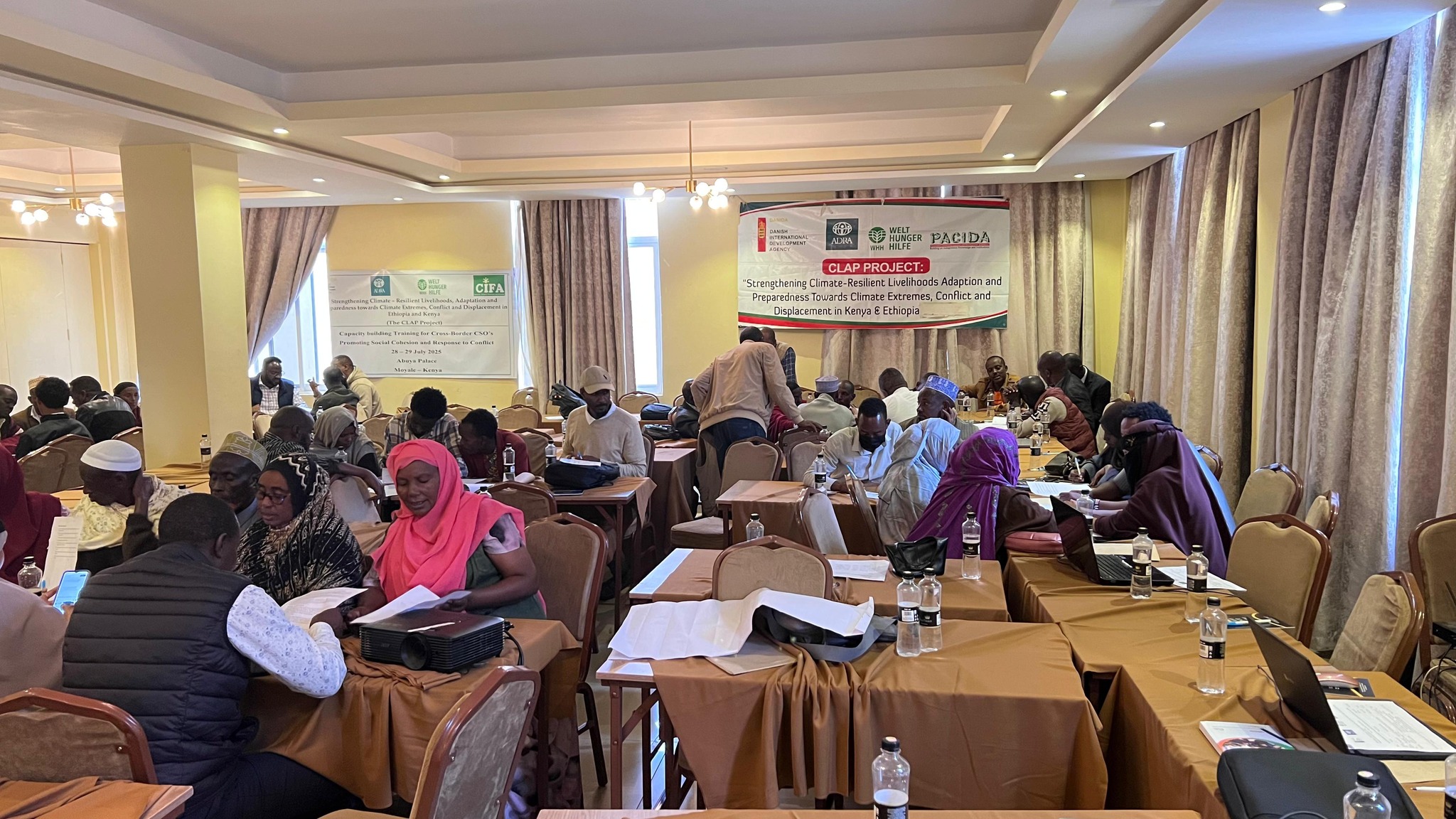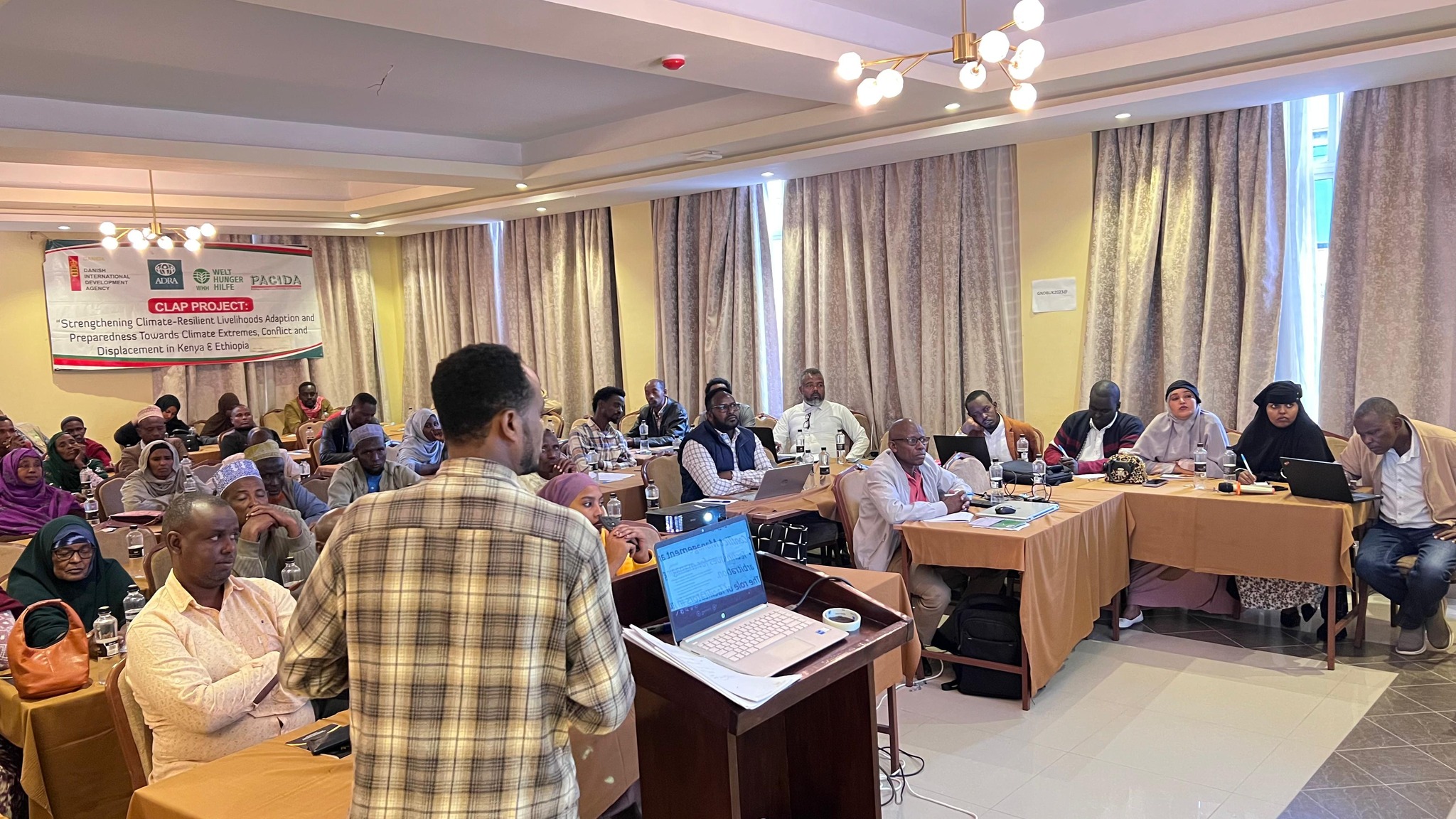Civil society organisations (CSOs) from Kenya and Ethiopia have completed a two-day cross-border capacity-building workshop aimed at strengthening peacebuilding and conflict resolution efforts.
The training, held through a partnership between Pastoralist Community Initiative and Development Assistance (PACIDA), Welthungerhilfe (WHH) Kenya, WHH Ethiopia, and CIFA Ethiopia, brought together participants from Moyale in Kenya and the Oromia and Somali regions of Ethiopia.
As explained by PACIDA, the training is a step toward addressing recurring conflict and social tension in the Horn of Africa.
These areas have long been hotspots of intercommunal violence driven by competition over natural resources, border disputes, and ethnic tensions.
The border town of Moyale, which straddles Kenya and Ethiopia, has experienced periodic clashes between communities, often triggered by land disputes, livestock raids, and political marginalisation.

Similarly, the Oromia and Somali regions of Ethiopia have seen recurrent violence rooted in historical grievances and contestation over administrative boundaries, especially between the Oromo and Somali ethnic groups.
Recognising the urgent need to promote peace in these fragile settings, the workshop targeted peace committee members and grassroots change makers to enhance their ability to serve as frontline peace actors.
Training sessions focused on key areas such as conflict analysis in cross-border contexts, dialogue-building strategies, early warning systems, conflict prevention techniques, and tools for mediation and negotiation.
Participants also explored the role of inclusive engagement, with special emphasis placed on empowering women and youth to actively participate in peacebuilding initiatives.
Strengthening cross-border collaboration among CSOs was another focal point, to build a united regional response to shared challenges.
The program culminated in action planning sessions where attendees crafted community-specific strategies for implementing their new knowledge.
These plans are expected to inform localised interventions that reinforce long-term peace, strengthen resilience, and foster social cohesion.
This initiative is part of broader regional efforts to build the capacity of civil society in preventing violence and promoting sustainable peace across borders.
With continued support and cooperation, such grassroots-led strategies are poised to play a vital role in transforming conflict-prone regions into zones of stability and development.

